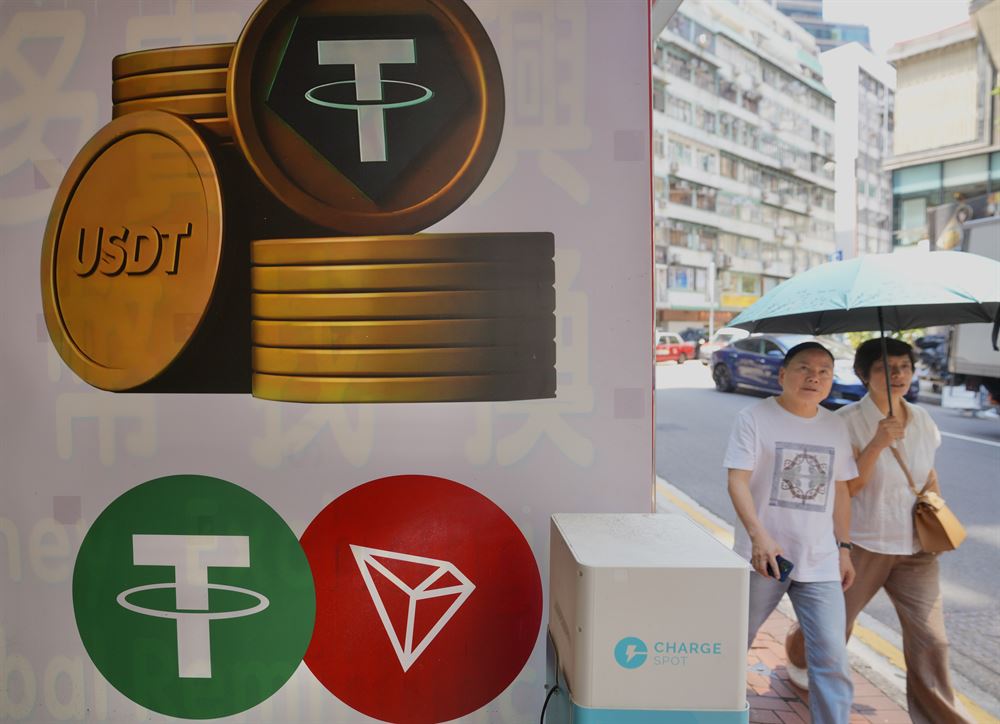
Capital-intensive pharmaceutical companies are transforming their rich intellectual property portfolios and future revenue rights into blockchain-traded digital tokens in a bid to bridge fundraising gaps by tapping into the vast liquidity of the global cryptocurrency market.
Many industry players have announced plans to tokenize their real-world assets (RWAs) in Hong Kong, where the regulatory framework for virtual assets is becoming increasingly clear.
Experts told China Daily that this trend is expected to fast-track bringing new treatments to market, but given the complexities of valuing these “intangible” assets and the uncertainties associated with drug development, tokenizing such assets requires sound technological and legal support.
ALSO READ: IVD Medical to tap market potential from medical assets tokenization
Earlier this month, the Shenzhen Stock Exchange-listed Hybio Pharmaceutical Co said that it will test a tokenization project in Hong Kong, with the future revenue rights from innovative drug development as the base assets, while a digital asset partner will bring these assets on-chain and provide support for trading and revenue distribution.
The medicine manufacturer said it hopes that the collaboration will foster synergy across the technology, pharmaceutical, and financial sectors, so as to unlock economic benefits from its research and development efforts well ahead of traditional timelines.
Moreover, Hong Kong-listed IVD Medical Holding Ltd in July announced plans to launch a blockchain-based exchange named ivd.xyz, designed to tokenize high-tech pharmaceutical assets acquired globally.
“Tokenization offers a novel way to unlock liquidity from illiquid assets like IP and future revenue rights, providing alternative financing channels beyond traditional bank loans or equity issuance,” said Jeffrey Ding, chief analyst at HashKey Group, a provider of digital asset financial services in Asia.
He added that tokenization enhances asset transparency and allows assets to be divided into smaller, tradable units, which could facilitate greater investor participation, including global institutional and retail investors, thereby diversifying funding sources.
The pharmaceutical sector has massive funding demands due to high R&D costs and long development cycles. Hybio Pharmaceutical, for instance, reported a loss of 174 million yuan ($24.2 million) in 2024, part of its multiyear history of red ink.
Similarly, vaccine maker Ab&B Bio-Tech Co, which debuted on the Hong Kong Stock Exchange recently, poured nearly 500 million yuan into research and development over the past two years, but has yet to turn a profit.
READ MORE: HK is advised to optimize its tokenization mechanism
For patients, tokenization could help accelerate the delivery of life-saving medicines to market by shortening the drug development cycle, said Keaton Hu, chief marketing officer at MyStonks, a decentralized platform for tokenized RWAs.
However, the industry insiders cautioned that turning these promises into reality won’t be easy. Unlike real estate or traditional financial assets like stocks and bonds, medical IP as the foundation asset for tokenization is highly intangible, non-standardized, and prone to value volatility, Hu said.
Valuation, in particular, would be one of the most pressing challenges, he said, since these assets’ value is tied to future clinical trial success rates and market acceptance, instead of existing cash flows or physical properties. Compounding the complexity, firms must navigate dual oversight from both financial and pharmaceutical regulators, Hu added.
In light of the hurdles, he said the key to successfully tokenizing IP and future revenues from innovative drugs lies in ensuring independent third-party valuations, along with robust legal and technological frameworks to protect investors.
Even so, the experts remain optimistic. Ding said he believes more pharmaceutical companies will enter the RWA tokenization space, particularly via Hong Kong, drawn by the city’s regulatory clarity, sophisticated financial system, and the proximity to the vast market of the Chinese mainland.
ALSO READ: New digital-asset blueprint bodes well for future development
MyStonks’ Hu agreed, saying that “I have seen strong interest from many leading pharmaceutical companies who are exploring RWA tokenization.” He said that if a pilot project succeeds in Hong Kong, more companies will follow suit.
Hong Kong could then attract not just pharma firms but also valuation experts, law firms, and technology providers, building a full ecosystem for medical tokenization.
While Hong Kong hasn’t introduced laws specifically for tokenizing pharmaceutical assets, recent moves signal growing support. For example, the Policy Statement 2.0 on the Development of Digital Assets in Hong Kong, released in June, outlined plans to advance the legal and regulatory framework for tokenization and to expand the offering of tokenized products.
Contact the writer at irisli@chinadailyhk.com


